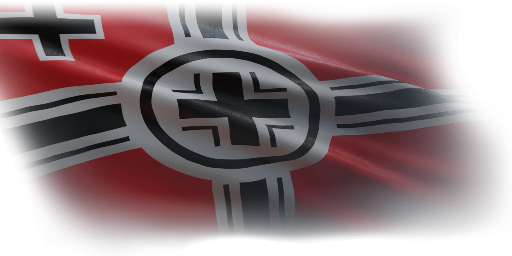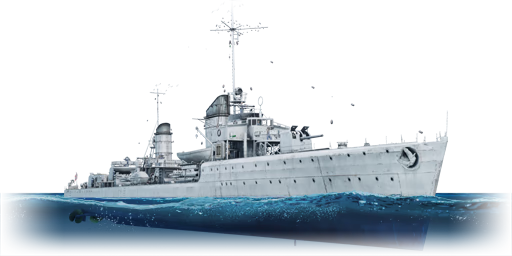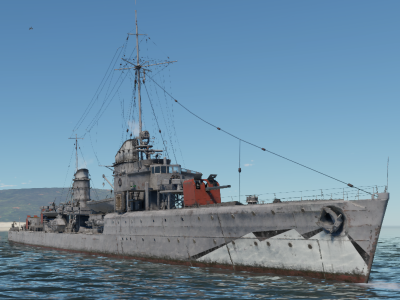

Bluewater Fleet
Jaguar
II
Rank
AB
3.7
RB
3.7
Battle rating
Germany
Research country
Destroyer
Main role

Premium vehicle
Status
General information
Where to purchase
Camouflages
Specification
Armour
Main fire tower
8 / 8 / 8 mm
Hull
16 mm (steel)
Superstructure
4 mm (steel)
Number of sections
7
Displacement
1,320 t
Crew
120 persons
Max speed
Forward
63547757 km/h
Backward
26223123 km/h
Primary armament
3 × Turret — 10.5 cm/45 SK C/32 cannon
Ammunition
300 rounds
Reload
basic crew → aces
5.2 → 4 s
Vertical guidance
-10 / 50°
Turret Rotation Speed
Horizontal
86.886.8 °/s
Vertical
86.886.8 °/s
| Ammunition | Type | Armor penetration (mm) at a distance: | |||||
|---|---|---|---|---|---|---|---|
| 1000 m | 2500 m | 5000 m | 7500 m | 10000 m | 15000 m | ||
| HE | 20 | 20 | 20 | 20 | 20 | 20 | |
| HE | 41 | 32 | 21 | 20 | 20 | 20 | |
| HE-TF | 20 | 20 | 20 | 20 | 20 | 20 | |
Secondary armament
4 × Turret — 2 cm/65 C/30 automatic cannon
Ammunition
8,000 rounds
Belt capacity
20 rounds
Reload
basic crew → aces
5.2 → 4 s
Fire rate
276 shots/min
Vertical guidance
-10 / 65°
Turret Rotation Speed
Horizontal
6555.36555.3 °/s
Vertical
5546.85546.8 °/s
| Belt | Belt filling | Armor penetration (mm) at a distance: | |||||
|---|---|---|---|---|---|---|---|
| 10 m | 100 m | 500 m | 1000 m | 1500 m | 2000 m | ||
| AP-T/AP/HEF-T/HEF | 36 | 35 | 29 | 24 | 21 | 18 | |
| AP/AP-T/AP/HEF | 36 | 35 | 29 | 24 | 21 | 18 | |
| HEF/HEF-T/HEF/AP | 36 | 35 | 29 | 24 | 21 | 18 | |
Additional armament
Setup 1
6 × 533 mm G7a torpedo
Economy
Repair cost
AB
1,610 

RB
2,483 

Crew training
10,000 

Experts
81,000 

Aces
500 

Research Aces
640,000 

Reward multiplier
AB / RB
 2 x (265 / 455) %
2 x (265 / 455) % 
 2 x 142 %
2 x 142 % 

Premium vehicle
All modifications are unlocked
Seakeeping |
|---|
Unsinkability | |
|---|---|
Firepower | ||
|---|---|---|
Rating by players
You must play more than 3 battles for the last week and more than 10 battles in a vehicle to rate it.
Like:
4
Armor protection:
Not enough ratings
Survivability:
Not enough ratings
Mobility:
Not enough ratings
Armament:
Not enough ratings
Balance:
Not enough ratings
Tips & Tricks
This space is currently empty
Do you know any interesting vehicle features?
Loading...
No articles about this vehicle yet
Become the first author and get rewards!
Write a guide, tell about interesting historical facts, make a tutorial or simply an interesting post.
No more content
